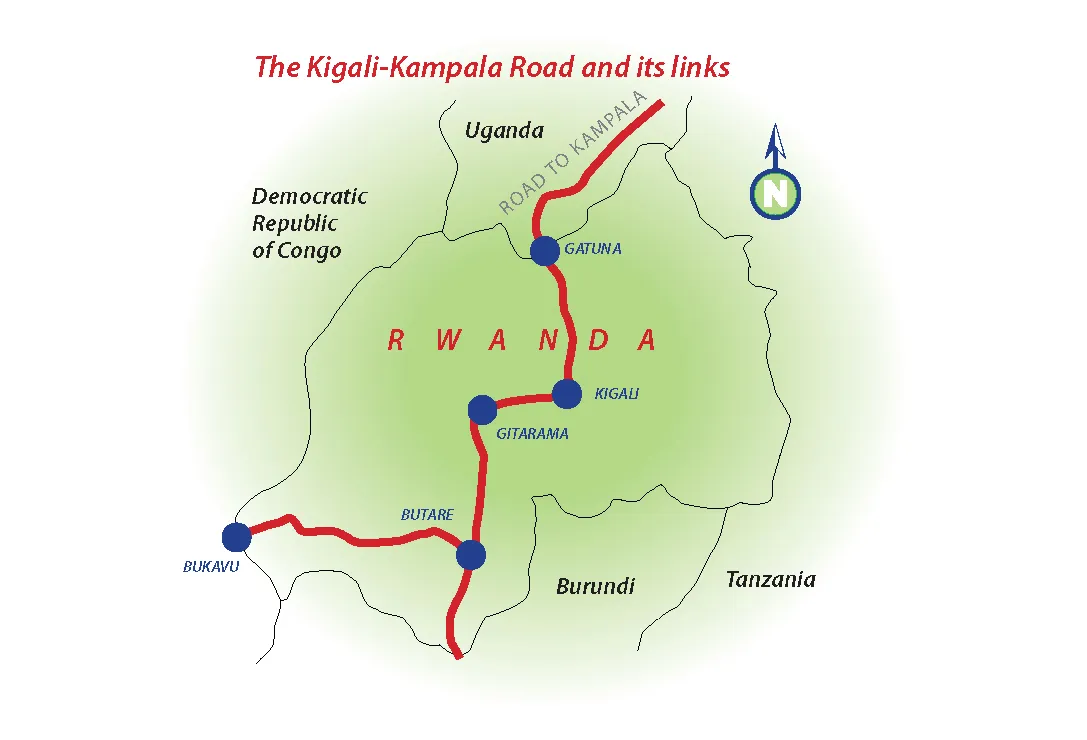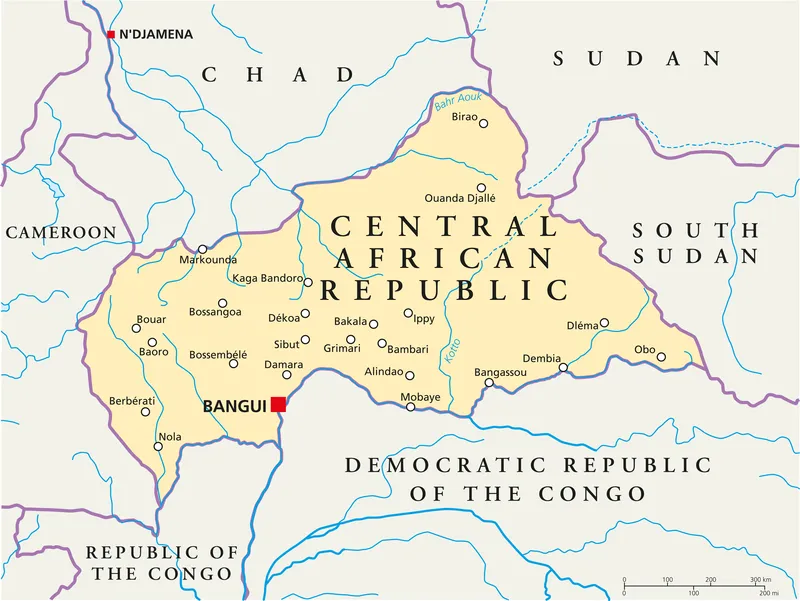Shem Oirere reports on plans for a major highway to Rwanda to other parts of Africa Construction of a 78km highway stretch that links Rwanda to the rest of Eastern Africa will start in May. State Minister in Charge of Transport Dr Alex. Nzahabwanimana said the contract for the US$54 million project has already been awarded to German construction company Strabag International.
May 8, 2012
Read time: 4 mins

Shem Oirere reports on plans for a major highway to Rwanda to other parts of Africa
Construction of a 78km highway stretch that links Rwanda to the rest of Eastern Africa will start in May.State Minister in Charge of Transport Dr Alex. Nzahabwanimana said the contract for the US$54 million project has already been awarded to German construction company
A project briefing by Strabag says construction works will include expanding the road's width between Kigali to the border town of Gatuna.
The road will be a total of 9m wide (7m of roadway, 1m for each shoulder), according to project details by Rwanda's Ministry of Infrastructure.
The contractor will also construct 115 concrete culverts; 73 arched metal duct drainage systems; improve existing bridges and build a new roundabout at the entrance to Kigali. In addition, bituminous wearing course will be laid. The rehabilitation will also involve removal of the existing pavement.
Strabag will also upgrade the parking bay at the Gatuna border post to enable Rwanda and Uganda to create a single border post.
The highway will link Rwanda to Burundi, Democratic Republic of Congo, Uganda and finally Mombasa Port through Kenya.
Presidents Paul Kagame (Rwanda) and Yoweri Museveni (Uganda) launched the rehabilitation works of the larger project, which is a highway running from Kigali through Gatuna to Mbarara in Uganda.
The highway, funded partially by the European Development Fund, will be one of the major links in the Northern Corridor network, and will be completed in 33 months.
"With this road we are integrating four countries: Rwanda, Uganda, Kenya and Democratic Republic of Congo. The
The EAC is a regional economic and political organisation with a membership of five countries. The others being Tanzania and Burundi.
According to Rwanda's Ministry of Infrastructure, the highway will, on completion, "improve international and domestic trade since it will facilitate the movement of goods and people, promote regional and sub-regional integration, provide a safe and sustainable road network and therefore reduce transport costs, especially for these landlocked countries." The stretch between Kigali and Gatuna and that of Gatuna and Mbarara will be linked by a single-axle weighbridge and a one-stop border at Gatuna.
"The road project will also entail the improvement of the sanitation system, the replacement of hydraulic structure degraded and the development of three wetlands crossing on compressible soil," says Rwanda's Infrastructure minister Albert Nsengiyumva.
"The financing agreement between the Government of Rwanda and the European Union include periodic maintenance of the Kigali-Gatuna section and support for road maintenance." This section is also part of a seven-year road improvement project, also financed by the EU, covering an estimated 600km of roads.
Apart from the Kigali-Gatuna road, the EU will this year provide an additional $52million for the improvement of roads in Rwanda, including Kigali-Kayonza, Kigali-Nyamata and Musanze-Rubavu.
The road upgrading programme also includes the roads of Base-Nyagatare (130km), traversing through Gicumbi District, and the Ngoma-Nyanza (130km) linking the Eastern and Southern provinces.
However, the EU says 90% of the $52 million will go towards improving feeder roads linking remote areas to main roads and markets.
"The main objective of rehabilitating big infrastructure in the field of road transport is to facilitate the movement of goods and people as well as decreasing the cost of movement of goods for landlocked countries like Rwanda," Arrion said.
According to Rwanda's Finance and Economic Planning minister John Rwangombwa: "The European Union has really been a supporter to Rwanda's infrastructure development, especially the road network, and it is now going beyond supporting national roads to financing district roads connecting farmers to main roads." Another 103km of Kigali city roads will also be improved under the EU funding in phases, with 34.5km being done in 2012.
Elsewhere in the country, construction of the







